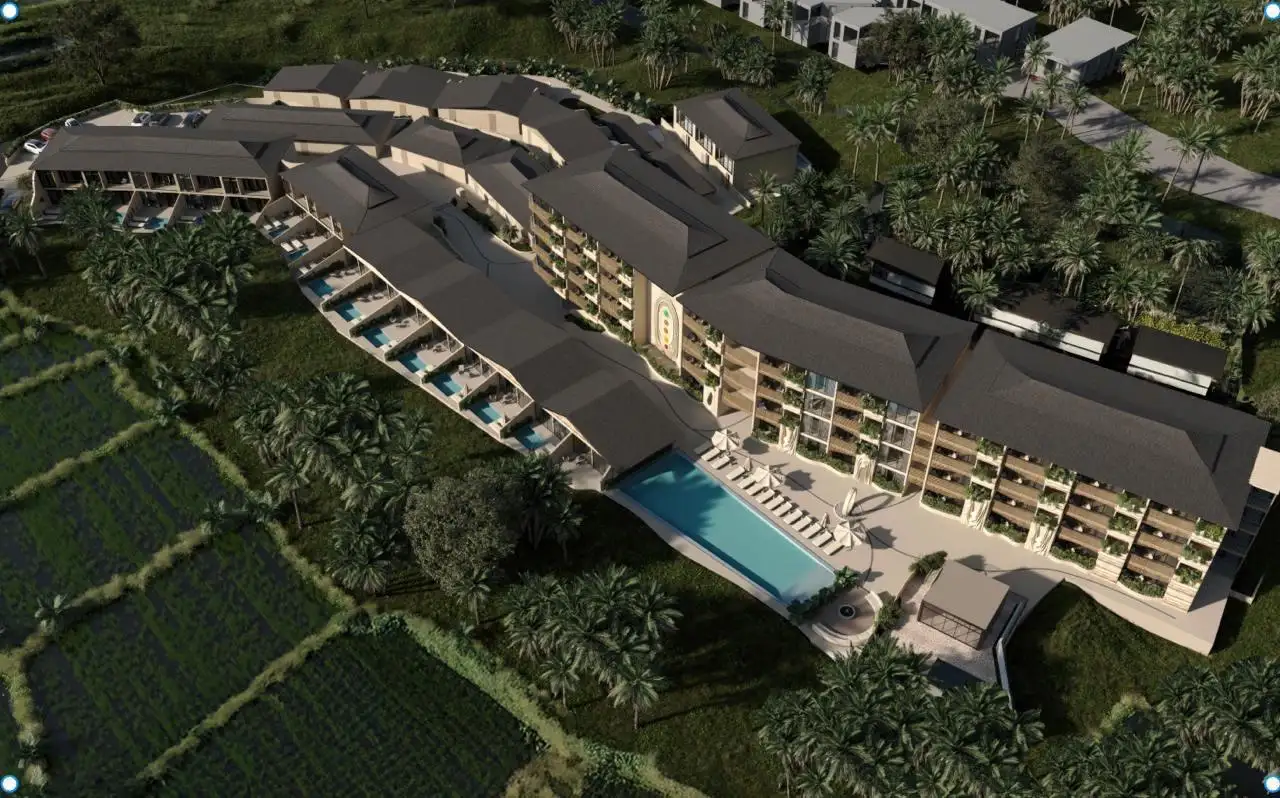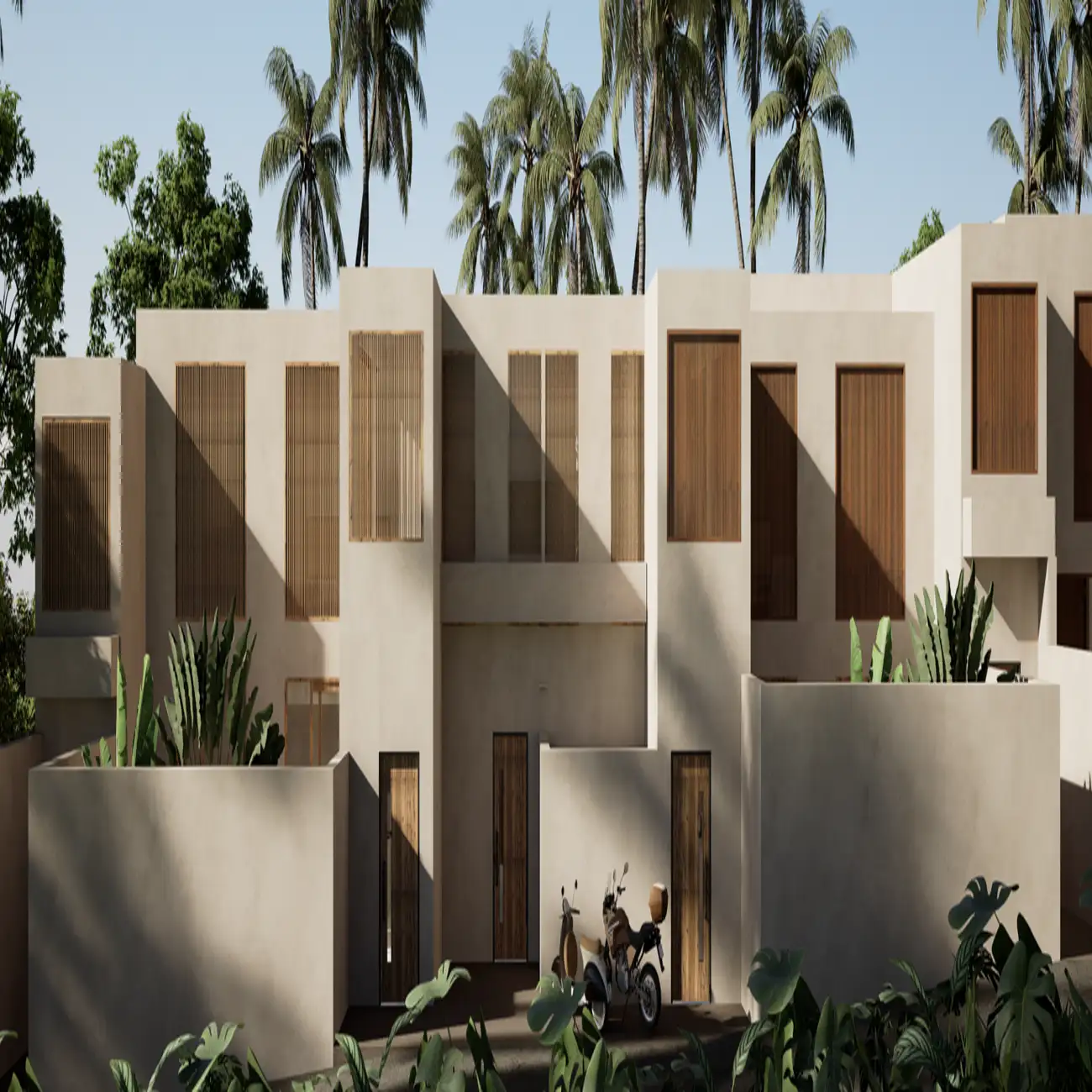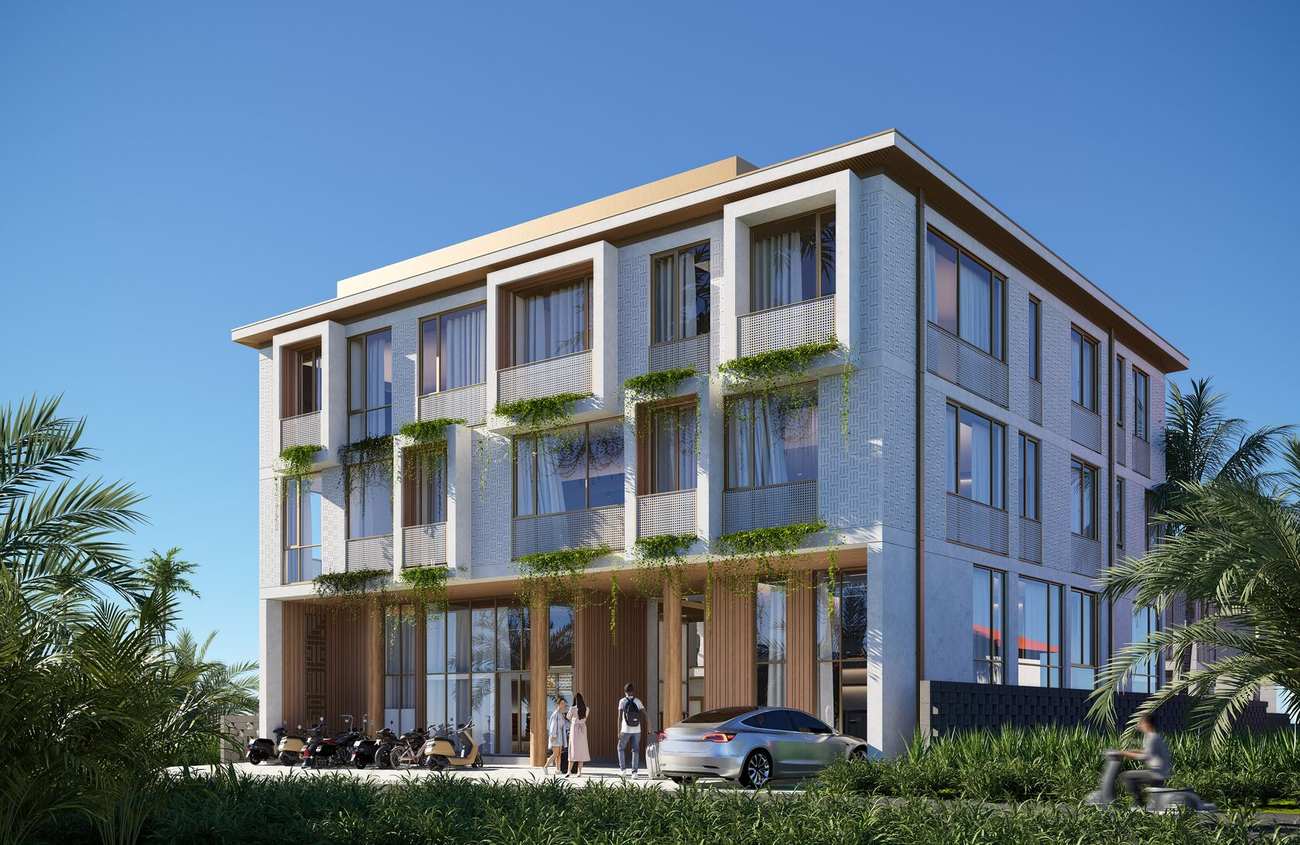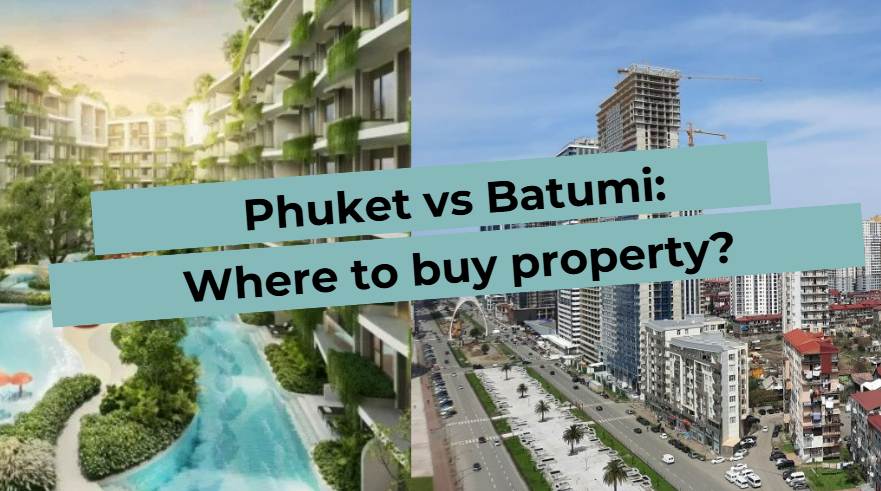
How to buy land in Bali


Real Estate Specialist
Bali is not just a paradise island with white-sand beaches and azure waters, but also a tempting place for real estate investment. In recent years, the economic situation on the island has shown steady growth, which makes buying land in Bali an attractive prospect for foreign investors. However, before investing your money, you need to thoroughly understand all the nuances and conditions of land acquisition. This article will provide you with all the information you need, from legal aspects to expert advice.
General information about Bali and the current economic situation
Bali, known for its spectacular scenery and cultural heritage, is also a center of economic growth in Indonesia. In recent years, the island has attracted an increasing number of tourists and investors, which has stimulated the development of local infrastructure and real estate. Steady growth in the tourism industry and increased foreign investment make buying land here particularly attractive for those looking for lucrative opportunities.
Main terms and conditions of land purchase
Buying land in Bali is subject to certain conditions that must be considered. Foreign nationals cannot own land (Hak Milik), but can purchase land through a long-term lease (Hak Sewa) for up to 25 years, renewable, or through a land use right (Hak Pakai), which can be granted for up to 80 years.
Additionally, it is possible to acquire land through the so-called "right to build" (Hak Guna Bangunan, HGB), which allows foreigners to own a building on land that remains formally owned by an Indonesian citizen. This type of right can be issued for up to 30 years with the possibility of renewal for a further 20 years, and even the possibility of further renewal after this period.
It is important to note that all types of land rights must be registered with the relevant Indonesian government agencies for them to be legal and recognized. The registration process can be complex and time-consuming, so it is recommended to start as early as possible.

It is also worth bearing in mind that the legal aspects of buying and owning land in Bali can change, and foreign investors should regularly consult with lawyers and realtors who specialize in real estate in IndonesiaTo keep abreast of current legislative developments.
When buying land in Bali, it is also important to consider environmental restrictions and building regulations that may affect the use of the land. For example, in some areas there may be restrictions on the construction of high-rise buildings or requirements to preserve the natural vegetation on the site.
Understanding and complying with all of these conditions and requirements will help ensure a successful and legitimate land purchase in Bali, making the investment more secure and potentially profitable.
Legal aspects of land acquisition by foreigners
Land acquisition by foreigners in Bali is governed by a strict legislative framework that is designed to protect the national interest while providing opportunities for foreign investment. It is important to understand the basic legal aspects to avoid potential legal complications.
Basic land rights for foreigners
- Hak Pakai (Right of Use): This is the most affordable option for foreigners wishing to purchase land in Bali. Hak Pakai allows foreigners to own land for a specified period of time, usually up to 25 years with the option to extend up to 80 years. This right can be in the name of an individual foreigner who holds a long-term visa in Indonesia, or in the name of a foreign company registered in Indonesia.
- Hak Sewa (Leasehold Right): Hak Sewa gives foreigners the right to lease land for a long period of time. This period can vary, but is usually between 25 and 30 years and can be extended. This right is ideal for those who do not want to invest in long-term land ownership.
Requirements for obtaining Hak Pakai
To qualify for Hak Pakai land rights in Indonesia, a foreigner must meet the following criteria:
- Availability of a valid visa: Foreigners must have a valid visa that allows long-term stay in Indonesia, such as KITAS (temporary stay card) or KITAP (permanent stay card).
- Registration of a transaction: All land transactions should be registered with the relevant state authorities to ensure legal protection of property rights.
- Compliance with local laws and regulations: You need to make sure that the land acquisition complies with local laws, including zoning and land use laws.
Types of property and land rights in Indonesia
There are several types of land rights in Indonesia, each with its own unique characteristics and limitations. Understanding these differences is critical for any foreign investor seeking to invest in a Bali real estate.
- Hak Milik (ownership)Hak Milik is the highest form of land ownership in Indonesia, available exclusively to Indonesian citizens. Hak Milik owners have the right to sell, lease or inherit the land.
- Hak Guna Bangunan (HGB - right to build): This right allows both citizens and foreign companies to own a building on land that does not belong to them by title. HGB is usually granted for up to 30 years and can be extended up to 20 years. This right is often used for commercial properties.
- Hak Pakai (right of use): This right allows foreigners to own land for a specified period of time, usually up to 25 years with the possibility of renewal. Hak Pakai can be issued for land owned by the government, individuals or companies. This right can also be transferred or inherited, making it a popular choice among foreign investors.
- Hak Sewa (leasehold right): Although it is not a form of ownership, Hak Sewa allows you to lease land for personal or commercial use. The lease term can vary and can be as long as 25 years or more, depending on the arrangements with the land owner.
- Hak Guna Usaha (right to conduct agribusiness): This right provides the opportunity to use public or private land for agricultural activities. It is usually granted for a period of up to 35 years with the possibility of extension.
Each of these types of land rights has its own nuances in terms of taxation, transfer of rights and other legal aspects. It is important for foreign investors to carefully explore all available options and seek professional legal advice to ensure that they are complying with Indonesian law and maximizing the potential of their investment in Bali.
Stages of land purchase
Buying land in Bali is a multi-step process that starts with finding a suitable plot of land. It is important to conduct a thorough analysis and select land that fits your investment objectives and budget. Once a plot has been selected, negotiations with the seller and the execution of all necessary documents follow, which often requires the assistance of legal and real estate services in Bali to ensure compliance with all legal requirements.
Selecting a suitable site is the first and one of the most important steps in the land purchase process. Consider different areas in Bali, taking into account factors such as proximity to tourist areas, availability of infrastructure, and potential future development of the region. Use the services of local agents who can help you find plots that meet your criteria and provide important information on legal restrictions and opportunities.
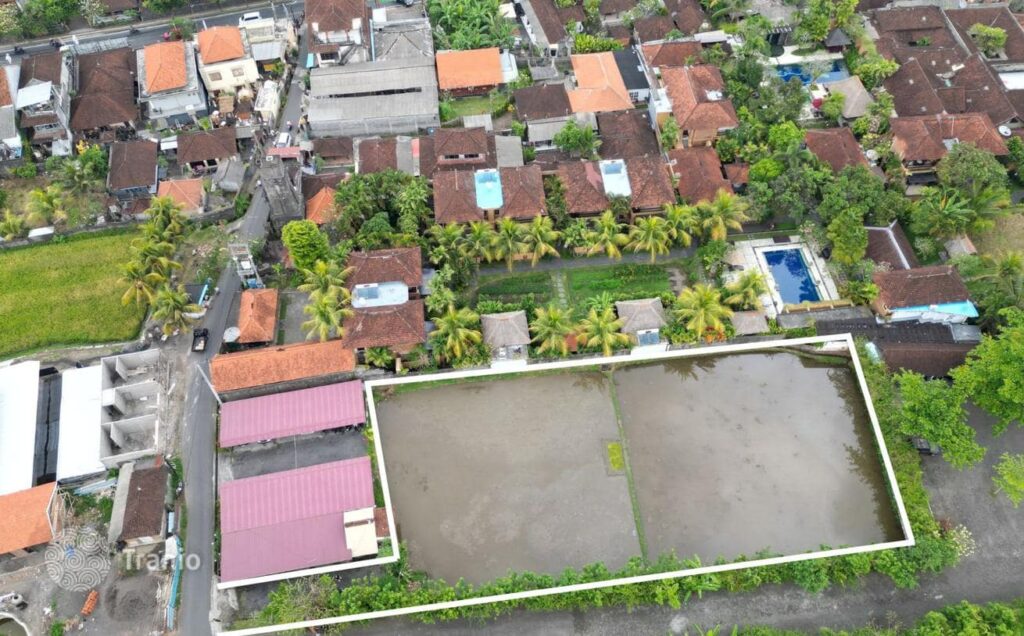
Once you have selected a suitable site, the next step is to negotiate with the seller. This stage requires a keen understanding of local market conditions and negotiation skills. It is important to reach an agreement that satisfies both parties, including agreeing on price, payment terms and other key aspects of the deal.
The final stage of land purchase includes the execution of all necessary documents and the legalization of the transaction. This includes signing the sale and purchase agreement, transferring ownership rights, and registering the transaction with the relevant state authorities. At this stage it is extremely important to use the services of experienced lawyers who will help to ensure that all documents are executed correctly and all legal requirements of Indonesia are met.
Each of these steps requires care and careful planning. Buying land in Bali can be a profitable investment if you approach the process deliberately and with preparation.
Financial aspects
The cost of land in Bali can vary significantly depending on a variety of factors including location, accessibility to infrastructure and proximity to tourist attractions. For example, land in popular tourist areas such as Seminyak or Kuta can cost between $500 and $1,000 per square meter. While in more remote and quieter areas such as Ubud or Sidemen, prices can start from $100 to $300 per square meter.
In addition to the original purchase price, it is important to consider the tax liability. In Indonesia, the property transfer tax (BPHTB) is usually 5% of the assessed value of the land, which is set by the local government. In addition, the annual land and building tax (PBB) is usually around 0.5% of the assessed value of the land. These taxes may vary depending on the region and the purpose of the land, so it is recommended that you consult your local tax advisor for accurate information.
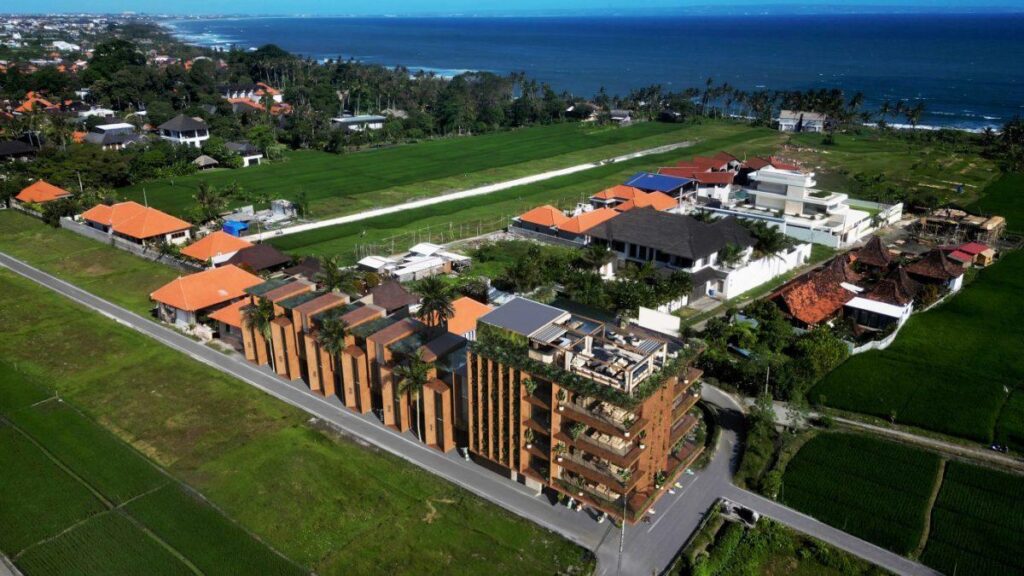
It is also important to consider possible additional costs associated with buying land, such as title registration fees and legal costs, which can range from 1% to 3% of the land value. These costs can significantly increase the total investment amount, so they need to be planned for in advance.
Investing in land in Bali requires not only understanding current prices and taxes, but also forecasting future market trends to maximize potential returns and minimize risks.
Buying land in Bali involves a variety of payment methods, including cash, bank transfer or financing through local banks. However, foreign investors should be particularly alert to currency risks and changes in legislation that may affect their investment. It is advisable to consult a financial advisor to minimize potential risks.
Bali regions for land purchase
Choosing a region in Bali for buying land plays a key role in investment potential. Here are a few popular neighborhoods, each offering unique opportunities and price ranges:
Seminyak and Kuta These areas are among the most popular among tourists, making them ideal for commercial real estate investment or short-term rentals. Land prices here can range from $500 to $1,500 per square meter depending on the exact location and proximity to beaches and major tourist attractions.
Ubud Ubud is known for its tranquil atmosphere and beautiful scenery, making it attractive to those seeking privacy or looking to invest in a long-term rental. Land here typically costs between $200 and $600 per square meter. Ubud is also popular with art and culture lovers, which adds further value to an investment in the area.
Sidemen Sidemen is a more secluded area that is starting to attract the attention of investors due to its incredible natural beauty and potential for ecotourism development. Land here can cost between $50 and $300 per square meter, making it a great choice for those looking for more affordable investment options.
Changu Changu is a rapidly developing neighborhood popular with young people and surfers. There are many cafes, stores and yoga studios, making it an ideal place to invest in commercial real estate. Land prices in Changgu can range from $400 to $1,000 per square meter.
Nusa Dua Nusa Dua is known for its luxury hotels and clean beaches, making it attractive for investment in high-end residential or hotel real estate. Land here typically costs between $300 and $800 per square meter.
Investing in land in Bali requires an understanding of both current prices and the growth potential of each area. With proper selection and management, land in Bali can offer a significant return on investment through increased tourist traffic and local infrastructure development.
Expert recommendations
Bali real estate experts advise potential land buyers:
- Conduct thorough market research. Explore different areas and types of land to determine which offer the best potential for value growth. For example, land in the Seminyak area can cost between $500 and $1,000 per square meter, while in more remote areas such as Tabanan, prices can start from $50 per square meter.
- Evaluate the infrastructural development of the region. Areas with developing infrastructure may offer higher investment returns in the future. For example, areas near new projects, such as the planned new airport in northern Bali, may increase in value significantly in the coming years.
- Utilize the services of professionals. Acquiring land in another country can be complicated, so it is important to have experienced lawyers and realtors on your side. Legal fees can range from $1,000 to $5,000 depending on the complexity of the transaction.
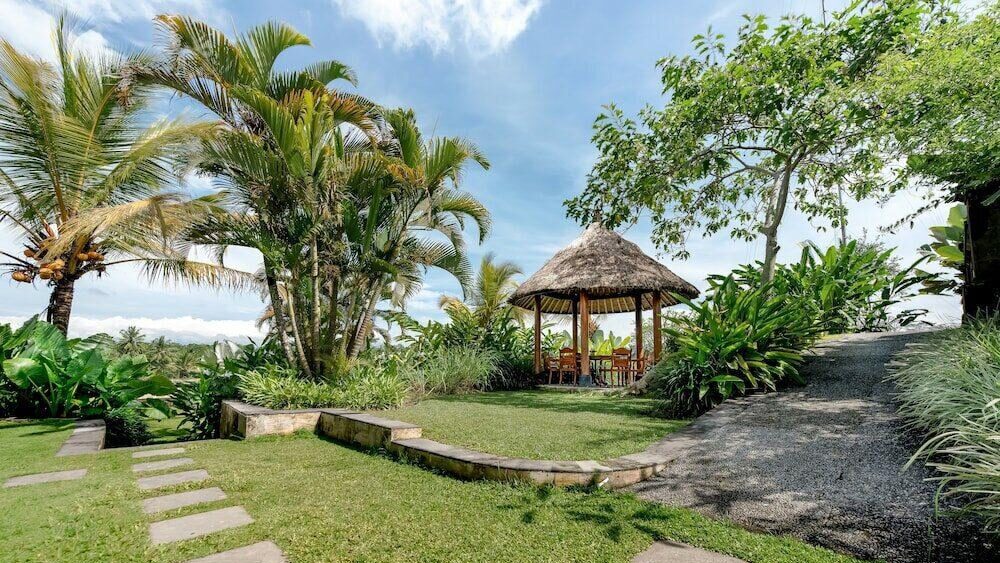
- Take into account the long-term economic outlook. In addition to current land values and potential for rental income, it is important to consider long-term economic trends such as inflation rates, political stability, and regulatory changes that may affect your investment.
- Plan an exit strategy. Even before buying land in Bali, it is important to have a clear exit strategy. This may include reselling the land after a few years or developing the property for later sale or lease. Understanding your ultimate target market and potential buyers or tenants can significantly improve your overall return on investment.
Feedback from landowners
To provide a deeper understanding of the market, we interviewed several successful land owners in Bali. They shared their stories of how they managed to find and acquire land, overcome initial obstacles and ultimately realize a return on their investment. These real-life stories can serve as a valuable source of inspiration and information for new investors.
The experience of Lina, an entrepreneur from Australia "I bought land in the Changgu area two years ago for US$100,000. My goal was to create an eco-friendly hotel that would meet the aspirations of modern tourists. At the initial stage there were difficulties in obtaining all the necessary permits, but thanks to the support of the local authorities and the community, the project succeeded. Today, my property is valued at about 150,000 USD and I receive a stable income from the operation of the property."

Mike's story, an investor from the US "My first experience buying land in Bali involved some challenges, including language barriers and understanding local regulations. I invested $200,000 in a large plot of land in the Seminyak area for development purposes apartment complex. With the help of a local lawyer, I was able to successfully navigate through all the legal processes. Now, five years later, the value of the land has increased to $300,000, and I consider this investment one of the most successful of my career."
These stories highlight the importance of careful planning and utilizing local resources when buying land in Bali. Each of these investors was able to overcome initial obstacles and achieve significant success, making their experience a valuable lesson for anyone considering similar investments.
Buying land in Bali represents an attractive investment opportunity, but requires careful planning and an understanding of local laws and the market.
Foreigners cannot own land outright, but can acquire it through long-term leases (Hak Seva) or rights of use (Hak Pakai).
Hak Pakai is a right of use that allows foreigners to use land for up to 80 years with extensions.
Hak Seva is a leasehold right that allows foreigners to lease land for up to 25 years with possible extensions.
Yes, foreigners can build a house on leased land, usually under Hak Guna Bangunan (right to build).
Required documents include passport, visa, rental agreement and registration with local authorities.
Foreigners need a valid visa, compliance with local regulations and registration of land rights with Indonesian authorities.
Can foreigners buy land in Bali?
Foreigners cannot own land outright, but can acquire it through long-term leases (Hak Seva) or rights of use (Hak Pakai).
What is a right of use?
Hak Pakai is a right of use that allows foreigners to use land for up to 80 years with extensions.
What's Huck Seva?
Hak Seva is a leasehold right that allows foreigners to lease land for up to 25 years with possible extensions.
Can a foreigner build a house on rented land in Bali?
Yes, foreigners can build a house on leased land, usually under Hak Guna Bangunan (right to build).
What documents do I need to rent land in Bali?
Required documents include passport, visa, rental agreement and registration with local authorities.
What are the legal requirements for foreigners to acquire land rights in Bali?
Foreigners need a valid visa, compliance with local regulations and registration of land rights with Indonesian authorities.


